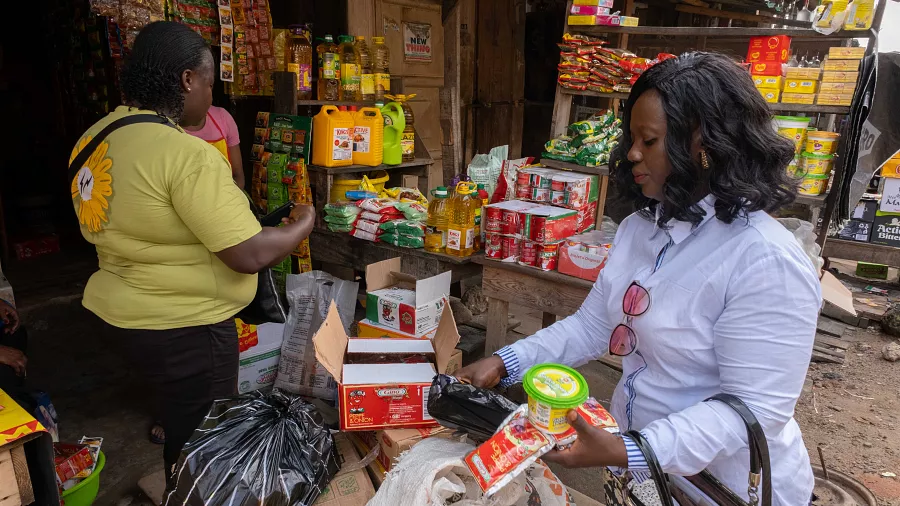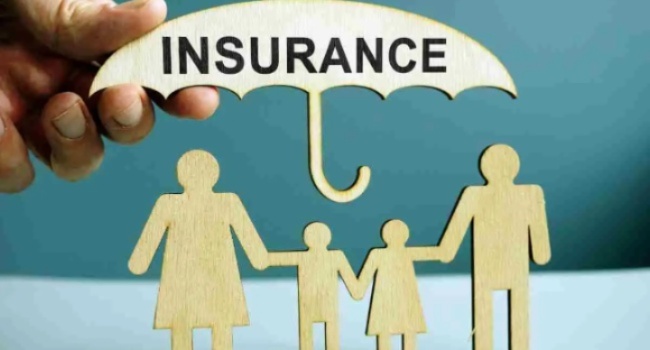Food prices in Nigeria have reached alarming heights, leaving many citizens struggling to afford basic meals. According to the latest report from the National Bureau of Statistics (NBS), the country’s headline inflation rose to 34.60% in November 2024, up from 33.88% in October. Food inflation alone surged to 39.93%, a significant increase from 32.84% in November 2023.
The sharp rise in food prices is driven by the increasing costs of essential items such as rice, yam flour, catfish, dried beef, and frozen chicken. These price hikes have hit households hard, forcing many to make difficult decisions about what to eat and when to eat.
Join our WhatsApp ChannelHouseholds Struggle to Cope
Musa Ibrahim from Ajao Estate, shared his experience of dealing with the rising cost of food. “I used to buy a bag of rice for N50,000, but now it’s over N100,000,” he lamented. “I’ve had to cut down on the number of meals my family eats each day. We used to have three meals, but now we’re down to two.” For Musa, the reality is clear—survival now takes precedence over nutrition.
Similarly, Chinyere Okafor, a market trader in Lagos, said, “Customers are complaining every day. They come to buy foodstuff and leave with less than they planned to buy because prices are too high. It’s affecting my business too because fewer people are buying in bulk.” For Chinyere, higher food prices mean reduced sales and a shrinking customer base.
For Lagos resident, Adebayo Adigun, the situation is even more dire. “I’ve had to stop buying fresh fish for my family because it’s too expensive. We’ve switched to cheaper alternatives like eggs, but even those are becoming costly,” he explained. “It’s like every week there’s a new price for everything.”
Experts Link Food Prices to Economic Policies
Economic experts have attributed the steep increase in food prices to policy changes implemented by President Bola Tinubu’s administration. Following his inauguration in May 2023, Tinubu removed the petrol subsidy and allowed the naira to float freely. The impact was immediate—petrol prices quadrupled, and the naira’s value plummeted from N700 to N1,600 per dollar.
“The removal of the petrol subsidy had a cascading effect on transportation costs, which directly impacts food prices,” said Dr. Emeka Nwosu, an economist. “Food items have to be transported across the country, and when the cost of fuel goes up, so does the cost of moving goods. This is why Nigerians are seeing these price increases at the market.”
Professor Maryam Sule, a financial analyst, echoed Dr. Nwosu’s sentiments. “When you float a currency like the naira, you open it up to market forces, and in Nigeria’s case, that’s led to a rapid depreciation of the currency,” she explained. “Because we import a lot of our food products, a weaker naira means higher prices for imported goods, and this has also affected local production due to higher input costs.”
The Human Cost of Rising Food Prices
The impact of food inflation is not just economic; it’s deeply personal for millions of Nigerians. Families are skipping meals, children are going to bed hungry, and small business owners are struggling to stay afloat. “Sometimes, I’m forced to send my kids to school without breakfast,” said Musa Ibrahim, his voice heavy with emotion. “How do you explain that to a child who’s hungry?”
READ ALSO: Food Prices Drive Inflation In Turkey As November Figures Show Increase
Women, often the primary caregivers, bear the brunt of this crisis. Chinyere Okafor described the emotional toll it’s taking on mothers. “We’re always thinking about how to make a small quantity of food stretch to feed the whole family,” she said. “Sometimes you’re in the kitchen, and you’re just praying for a miracle.”
Will Relief Come Soon?
With inflation rates showing no signs of slowing, Nigerians are left wondering when relief will come. The government has promised to introduce palliative measures, but many remain skeptical. “We’ve heard about government interventions before, but it’s all talk,” said Adebayo Adigun. “We need action. People are suffering.”
Experts have called for more targeted policies that address the root causes of inflation. “The government must find a way to stabilise the naira and reduce transportation costs,” said Dr. Emeka Nwosu. “Otherwise, we’ll continue to see these inflationary pressures affect basic goods like food.”
Food prices in Nigeria are soaring, and the impact on families is severe. From skipping meals to cutting down on essential food items, Nigerians are being forced to make choices that affect their well-being.
While the government’s economic policies aim to stabilize the economy in the long term, the immediate consequences have left many citizens in survival mode. Without swift intervention, the human cost of rising food prices could worsen, leaving more Nigerians hungry and hopeless.
Emmanuel Ochayi is a journalist. He is a graduate of the University of Lagos, School of first choice and the nations pride. Emmanuel is keen on exploring writing angles in different areas, including Business, climate change, politics, Education, and others.



















Follow Us